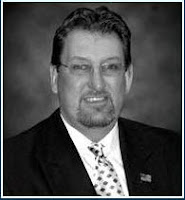Elder Court is Crucial
Elder financial abuse has become a hidden national epidemic
TO GET A SENSE of the horrible things that happen to defenseless elderly people behind closed doors, visit Alameda County's Elder Protection Court in Oakland on a Friday morning.
Department 4 looks like a scene from a nursing home. White-haired men and women hunch over walkers with yellow tennis balls stuck to the legs. Others with long plastic tubes dangling from their nostrils drag green oxygen tanks on wheels. Those who can't get around under their own power use motorized wheelchairs.
The old, sick and desperate have come to see Alameda County Superior Court Judge Julie Conger. Most have come to ask for civil restraining orders that they pray will protect them from people who have been abusing and harassing them.
The sad thing is, most of the time, seniors need protection from the very people you'd expect to be looking after them: their own children, grandchildren, and other relatives.
There is an Afghan refugee whose schizophrenic son beat her within an inch of her life with a clothes iron. Another woman whose crack-addicted son defecates in her flowerpots and steals her things. An elderly man whose daughter sneaked up behind him with a butcher knife while he was sitting on the couch, watching TV.
bedridden have been left to rot for days in their own feces. The wheelchair-bound have been left writhing on the floor for days after a fall. The critically ill have been deprived of their medicine.
But financial abuse, by far, is the most common complaint: Bank accounts looted. Credit cards stolen. Huge loans taken out against seniors' homes without their permission. Property transferred out of their names.Conger, a no-nonsense 25-year-veteran of the bench, has made fighting elder abuse her personal crusade. She is founder of the elder court - the only court in the country that handles civil and criminal complaints involving elderly victims in the same central location.
Restraining order sessions are in the late morning to give seniors time to get up and get going. Case Manager Maria Jimenez helps shepherd seniors through the confusing court process.
All too often, elder abuse complaints fall through the cracks in the judicial system. A lot of judges don't want to be bothered with files as thick as phone books and victims who may not remember what they had for breakfast.
Several years ago, she began noticing more and more senior citizens turning up in her domestic violence court. "They were getting lost in the shuffle," she said.
She hated seeing elderly people who could barely sit up waiting hours for their cases to be called. Forced to sit through violent testimony.
Conger decided to do something about it. She told her clerks that whenever they saw anyone with gray hair, they were to bring her the file right away.
The problem was, there were just too many seniors to move them all to the front of the line.
That's when Conger realized that senior victims needed their own court. In 2002, with the help of a grant from the California Judicial Council, Alameda's Elder Protection Court was born.
It's the only court where the plaintiffs are all 65 or older (or dependent adults with certain mental or physical limitations) and the judge is a senior citizen.
The elder court handles more than 150 complaints a month. Conger issues restraining orders and presides over all felony elder abuse cases.
She runs a tight ship and doesn't tolerate excuses or breaches in courtroom etiquette from criminal defendants, their lawyers, or prosecutors.
Yet she has boundless patience for elder abuse victims. Her voice softens when she encourages an elderly woman to speak up. She shouts for an old man who can't hear. She repeats herself for seniors whose minds aren't as sharp as they once were - making sure that they understand the proceedings.
By Conger's own description, she is part judge, part social worker. She doesn't hesitate to mete out punishment and is adamant that elder abusers pay restitution, serve time, or both for their crimes.
But when possible, she also uses the power of the bench to try to help families repair their damaged relationships. The family dynamics in elder court are similar to those in domestic violence court.
Abusers are often adult children who are alcoholics, hooked on drugs, mentally ill or otherwise dysfunctional. They steal or abuse their loved ones to feed an addiction. Parents still love their kids and want contact with them. They just want the abuse to stop.
Conger stays with the felony cases from start to finish - unlike in most criminal matters where there might be a different judge for every hearing.
Conger knows the details of each case. Prosecutors don't have to keep starting from scratch with a different judge. Defendants can't "judge shop" because Conger is the only game in town.
Conger also appreciates the need for speed. When a victim is in his or her 90s, there's no time for the typical court delays. Old people die -- quickly and without warning. Once charges are filed, prosecutors must move quickly.
Conger works with the Alameda County District Attorney's elder abuse unit to set up conditional exams as soon as humanly possible. The videotaped questioning, by both the defense attorney and the prosecution, is admissible in court should the senior die or be unable to testify for some other reason.
Without a conditional exam and a dead victim, there is no case.
Conger's court has helped protect thousands of seniors from abuse and helped elderly crime victims get justice. The one-of-a-kind program shouldn't just be a model for the rest of California. It ought to be replicated across the nation.
















No comments:
Post a Comment